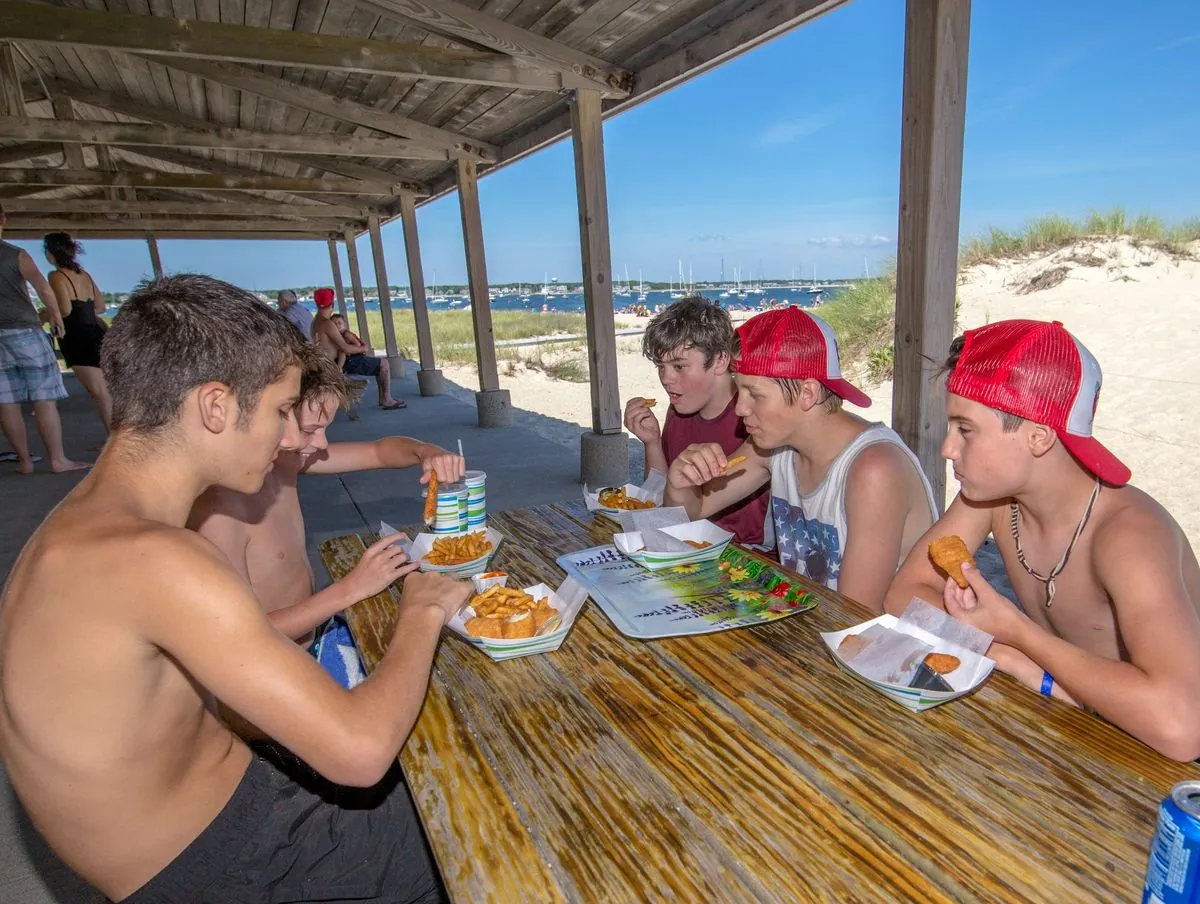The phenomenon of increased appetite at the beach, often referred to as "Big Beach Hunger," is a common experience for many beachgoers. This article explores the various factors contributing to this heightened desire for food in seaside settings.
Lisa Moskovitz, a registered dietitian and CEO of NY Nutrition Group, confirms that beach hunger is indeed a real occurrence. The causes behind this increased appetite are multifaceted, encompassing both biological and emotional aspects.
From a biological standpoint, the physical exertion involved in beach preparation and activities can significantly impact hunger levels. Avery Zenker, a registered dietitian in Ontario, points out that activities such as swimming and volleyball further stimulate appetite. Additionally, the risk of dehydration at the beach can lead to confusion between thirst and hunger cues.
Alcohol consumption, a common beach indulgence, can exacerbate hunger. Moskovitz explains that alcohol acts as an appetite stimulant for many individuals, while also contributing to dehydration.
The types of food consumed at the beach also play a role in perpetuating hunger. Snacking on refined carbohydrates and sugary treats can lead to blood sugar spikes and subsequent crashes, triggering cravings for more food. Moskovitz suggests that a well-rounded meal including vegetables and protein can help maintain satiety.
Psychological factors significantly influence beach hunger as well. Sarah Herrington, a Phoenix-based nutritionist, highlights the impact of conditioning and nostalgia. Many people associate the beach with childhood memories of abundant snacks, priming them to eat upon reaching the sand.
"The beach for a lot of people can be nostalgic. We associate being at the beach with playing as kids and our moms having a lot of snacks. … That alone can make us think about food and ignite that drive to eat something."
Social influences, such as observing others eating, and the relaxed atmosphere of the beach can also trigger the desire to eat. Furthermore, the beach is often viewed as a place of enjoyment, and for many, food enhances this pleasurable experience.
It's worth noting that beaches have long been popular vacation destinations. The concept of beach holidays gained popularity in the 18th century, and today, beach tourism significantly contributes to many countries' economies. The world's longest beach, Praia do Cassino Beach in Brazil, stretches over 150 miles, offering ample space for beachgoers to indulge in their favorite seaside snacks.
In conclusion, the combination of physical activity, environmental factors, and psychological associations all contribute to the heightened appetite many experience at the beach. Understanding these factors can help beachgoers better prepare for and manage their food choices during seaside outings.
